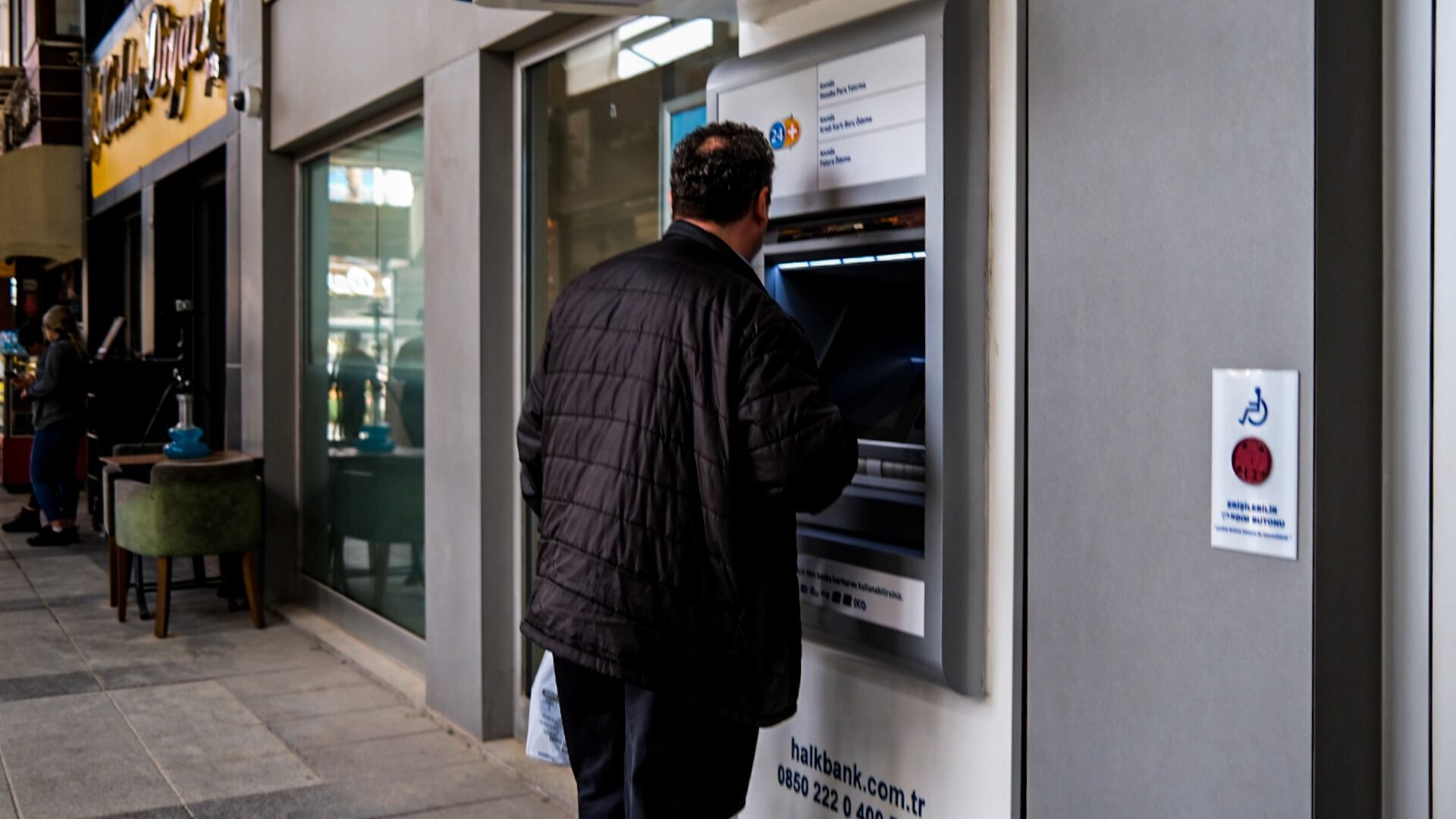The cost to overdraw a bank account could drop to as little as $3 under a proposal announced by the White House, the latest effort by the Biden administration to combat fees it says pose an unnecessary burden on American consumers, particularly those living paycheck to paycheck.
The change could potentially eliminate billions of dollars in fee revenue for the nation’s biggest banks, which were gearing up for a battle even before Wednesday's announcement. Exactly how much revenue depends on which version of the new regulation is adopted.
Banks charge a customer an overdraft fee if their bank account balance falls below zero. Overdraft started as a courtesy offered to some customers when paper checks used to take days to clear, but proliferated thanks to the growing popularity of debit cards.
“For too long, some banks have charged exorbitant overdraft fees — sometimes $30 or more — that often hit the most vulnerable Americans the hardest, all while banks pad their bottom lines," President Joe Biden said in a statement. "Banks call it a service — I call it exploitation.”
Under the proposed rule, banks could only charge customers what it would cost them to break even on providing overdraft services. This would require banks to show the CFPB the costs.
Alternatively, banks could use a benchmark fee that would apply across all affected financial institutions. Regulators proposed several fees — $3, $6, $7 and $14 — and will gather industry and public input on the most appropriate amount. The CFPB says it arrived at these figures by looking at how much it cost banks to recoup losses from accounts that went negative and were never paid back.
According to research conducted by Bankrate last August, the average overdraft fee was $26.61. Some banks charge as much as $39. The nation’s biggest banks still take in roughly $8 billion in overdraft fees every year, according to data from the CFPB and banks' public records. The bureau's research also shows overdraft fees overwhelmingly impact the poor and households of color, who often overdraft multiple times a year.
Biden has made the elimination of “junk fees” one of the cornerstones of his administration’s economic agenda heading into the 2024 election. Overdraft fees have been at the center of that campaign, and the White House directed government regulators last year to do whatever is in their power to further curtail the practice.
“We are proposing rules to close a longstanding loophole that allowed many large banks to transform overdraft into a massive junk fee harvesting machine,” said Rohit Chopra, director of the Consumer Financial Protection Bureau, in a prepared statement to reporters.
Banks could also provide small lines of credit to allow customers to overdraft, a service that would operate like a credit card. Some banks like Truist Bank currently offer that type of service.
The rules would apply only to banks with more than $10 billion in assets, which is roughly 175 banks that make up most of the financial institutions Americans do business with. The rules spare small banks and credit unions, some of which rely disproportionately on overdraft fees. CFPB officials told reporters that it chose to focus on the largest banks since most Americans bank at these large institutions and that is where the widespread abuses have historically happened.
Decades ago, banks created a service that allowed certain customers with checking accounts to go negative in their accounts to avoid bouncing paper checks. What started as a niche service became a massive profit center for the banks after the proliferation of debit cards that caused customers to debit their bank accounts for small and large amounts of money multiple times a day.
Overdraft fees have been a financial bonanza for the banking industry, with the CFPB estimating that banks collected $280 billion in overdraft fees in the last 20 years. These fees became so popular that one bank CEO named his boat the “Overdraft.”
Caving to popular and political pressure, most of the biggest banks have added safeguards to customers’ accounts to allow them to bring the balance back into positive territory before they incur a fee. Bank of America, once considered by industry critics to be the biggest abuser of overdraft fees, cut its fee from $35 to $10 two years ago and says revenue from overdraft fees is now less than 10% of what it had been.
The banking industry has been preparing for the CFPB proposal for months, and is expected to fight the new regulations vigorously. The regulations are likely to end up in a protracted legal battle that could reach the Supreme Court.
“If enacted, this proposal could deprive millions of Americans of a deeply valued emergency safety net while simultaneously pushing more consumers out of the banking system,” said Lindsey Johnson, president and CEO of the Consumer Bankers Association, the trade and lobby organization for the larger consumer banks.
While not as reliant on overdraft fee income as they used to be, a Bankrate survey found that 91% of bank accounts still can charge overdraft fees.
If the rule is adopted and survives political and legal challenges, the new regulations would go into effect in the autumn of 2025.













